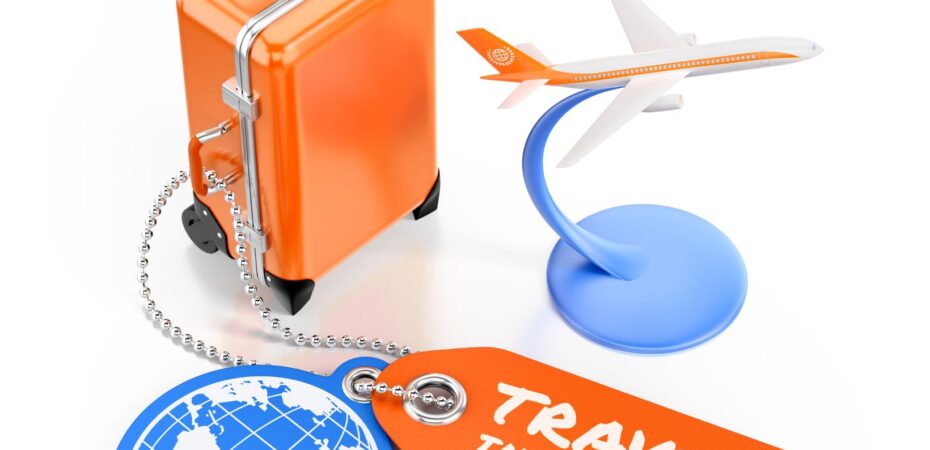Traveling to another country is an exciting adventure, but it comes with its share of challenges. Preparation is crucial to ensure your journey is smooth and stress-free. Among all the essentials, travel insurance is arguably the most important. Whether you’re planning a weekend getaway or an extended trip, having the right travel insurance can protect you from unforeseen emergencies that could derail your plans. Here’s a comprehensive checklist to help you prepare for your journey.
The Role of Travel Insurance
Why Travel Insurance is Recommended
Travel insurance is recommended for travelers, as it offers protection against unforeseen events such as medical emergencies, trip cancellations, or lost luggage. Some destinations may also request proof of travel insurance as part of entry requirements.
When selecting a travel insurance policy, consider including:
- Medical coverage for unexpected treatments and emergencies.
- Trip cancellation or delay protection to mitigate financial loss.
- 24/7 assistance services for support with travel-related issues.
- Coverage for personal belongings in case of loss or theft.
While traveling without insurance is possible, it may expose you to unexpected financial and logistical challenges, making adequate coverage an important consideration.
Essential Travel Documents
Passport and Visas
Your passport should have at least six months of validity from your departure date. Check visa requirements for your destination, as application processes can take time.
Vaccination Certificates
Some countries mandate vaccinations, like yellow fever or hepatitis. Ensure you carry both digital and physical copies of required certificates. COVID-19 regulations may also apply, so verify the latest entry requirements for your destination.
Financial Preparations
Currency Exchange
Exchange some South African Rand for the local currency before you travel. Local banks or currency services often offer better rates than airports.
Credit Cards and Banking
Inform your bank about your travel plans to avoid any card suspensions due to flagged activity. A backup payment method, such as a prepaid travel card or extra cash, is essential.
Budget Planning
Prepare a detailed budget, factoring in accommodations, meals, transportation, and activities.

Always allocate funds for emergencies.
Packing Essentials
Clothing
Pack according to your destination’s climate and cultural expectations. For instance, modest attire may be required in some regions.
Toiletries and Personal Care
Stick to travel-sized toiletries to save space and comply with airline restrictions. Avoid packing items like aerosols, which may be prohibited.
Electronics
Bring a universal adapter and portable chargers for your devices.
Health and Safety
Medical Supplies
A basic first-aid kit with prescription medications, pain relievers, bandages, and antihistamines can be a lifesaver.
Emergency Contacts
Prepare a list of emergency numbers, including local authorities, embassies, and family contacts. Keep both physical and digital copies easily accessible.
Personal Safety Tips
Stay vigilant, avoid isolated areas at night, and only use licensed transportation services.
Travel Itinerary and Logistics
Flight Tickets
Double-check your flights, baggage allowance, and check-in details.
Accommodation Details
Save copies of your reservations and familiarize yourself with cancellation policies.
Transportation
Plan airport transfers and research public transport options to avoid last-minute hassles.
Communication Needs
SIM Cards and Data Plans
Purchase a local SIM card or activate an international roaming plan for uninterrupted connectivity.
Emergency Communication
Download offline maps and consider portable Wi-Fi for backup connectivity options.

Cultural Preparation
Language Basics
Learn a few key phrases to ease communication in your destination country. Apps like Duolingo are great for quick lessons.
Local Customs and Etiquette
Research cultural norms to avoid unintentional missteps and show respect for the local community.
Eco-Friendly Travel Tips
Make your travels greener by carrying reusable water bottles, opting for eco-friendly accommodations, and minimizing waste.
Conclusion
A well-prepared traveler is a confident one. As a South African traveling abroad, your checklist should start with travel insurance to protect against unforeseen disruptions. From securing essential documents to planning your budget and packing efficiently, each step ensures a stress-free journey. With the right preparation, you’ll enjoy a safe and memorable adventure abroad.


 By
By 



